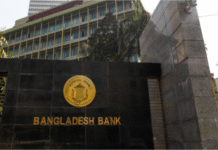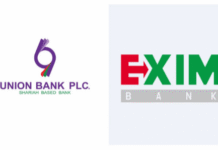The revenue authority is relying on cigarettes and tobacco products and a steady growth of economic activities to soften the blow of the postponement of the new VAT law by another two years.
The finance division drafted a massive budget for this fiscal year banking on higher revenues from the implementation of the VAT and Supplementary Duty Act 2012 that prescribes a 15 percent VAT for most of the goods and services available in the country.
At the eleventh hour the implementation of the new VAT law was shelved by another two years by lawmakers, leaving a gap in the finance division’s books.
However, the VAT collection target was not changed in light of the development. The last-minute nature of the change meant that the National Board of Revenue did not get enough time to make the requisite adjustments to its collection arrangements.
Some new measures could be taken under the existing VAT law, which is forecasted to generate about Tk 17,000 crore of additional revenue this fiscal year, according to taxmen.
But, it would be tough to achieve the VAT collection target of Tk 91,254 crore for the fiscal year, which is 33 percent higher than the outgoing year’s receipts, they said.
The revenue authority registered 20 percent growth in collections last fiscal year — the highest since fiscal 2013-14, according to NBR data.
“We are preparing a work plan to achieve the target through administrative measures, including curbing evasion and realising arrears,” said a senior VAT official.
About Tk 11,000 crore of extra revenue would come for the steady economic growth, domestic demand and the price spiral of goods and services, he said.
More revenue will come after the price slabs for cigarettes and tobacco products were re-worked. “We expect to get Tk 5,000 crore more revenue from cigarettes, bidi and other tobacco products.”
The NBR collected Tk 20,000 crore as VAT and supplementary duty from this category last fiscal year.
The small and medium traders will continue to pay package VAT this fiscal year, but the NBR doubled the amounts. For instance, the package VAT for traders in Dhaka and Chittagong city corporation areas was raised to Tk 28,000 a year from Tk 14,000.
The package VAT system brings the revenue authority less than Tk 20 crore a year. “The collection efforts will be intensified this time.”
Besides, they would look to tap into new areas to achieve the annual collection target. However, even if the new VAT law came in to effect from this year it would have taken two-three years to get reap its full benefits, he added.
Source: New Age









